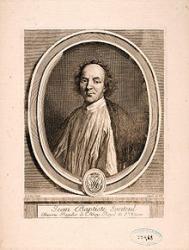1 O Zion, open wide thy gates,
let symbols disappear;
a priest and victim, both in one,
the Truth himself, is here.
2 Aware of hidden deity,
the lowly Virgin brings
her newborn babe, with two young doves,
her humble offerings.
3 The agèd Simeon sees at last
his Lord, so long desired,
and Anna welcomes Israel's hope,
with holy rapture fired.
4 But silent knelt the mother blest
of the yet silent Word,
and pondering all things in her heart,
with speechless praise adored.
5 All glory to the Father be,
all glory to the Son,
all glory, Holy Ghost, to thee,
while endless ages run.
Source: CPWI Hymnal #771a


 My Starred Hymns
My Starred Hymns





